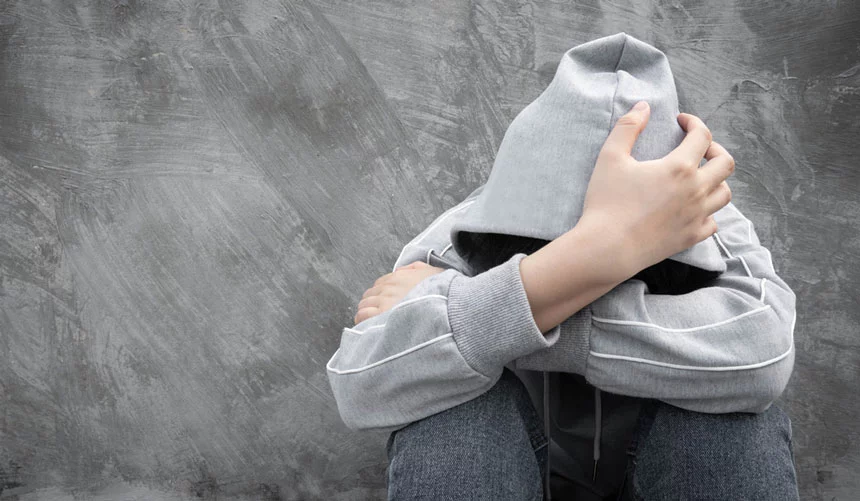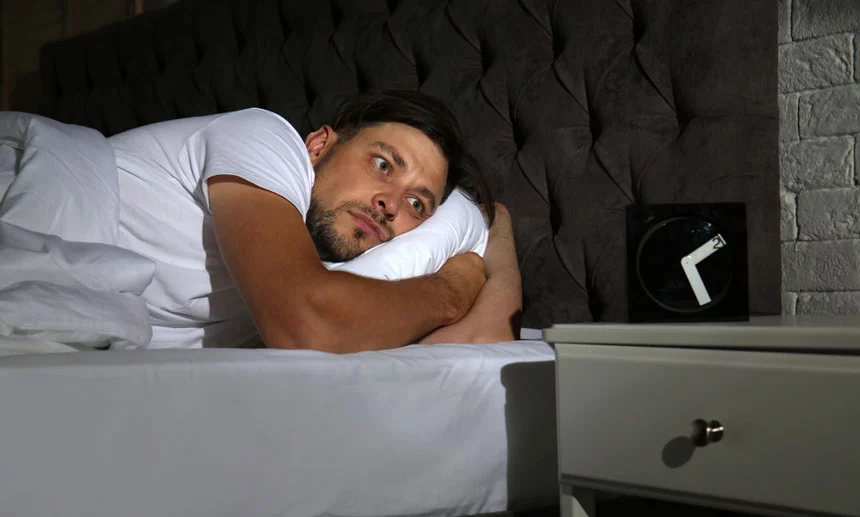How to Find Top Detox Centers Near You
Table of Contents
- How to Find Top Detox Centers Near You
- What is a Medical Detox Program?
- The Goal of Medical Detox
- What are the Signs Someone Needs a Medical Detox?
- What Substances Cause the Most Severe Withdrawal Symptoms?
- What are the Signs of Top Detox Treatment Centers?
- 4 Tips for Finding Top Detox Centers
- What Comes After Detox in Substance Abuse Treatment?
- Get Effective Medical Detox Services Now!
- FAQs On Detox Centers Near Me
When beginning the recovery process. Knowing how to find treatment options that are right for you can be overwhelming. Addiction is a difficult condition to struggle with and will require a detox experience that takes place in a supportive and safe environment.
So when looking for detox centers in your area, or anywhere in the US for that matter, what should you be keeping an out for? There are many things to keep an eye out for when looking for treatment facilities that can meet all of your recovery needs. Whether you are looking on behalf of family members, or for yourself, our complete guide is here to help!
Keep reading to learn how you can find drug detox and rehab programs near you, and how the Find Addiction Rehabs team can help you get started on your recovery journey today.
What is a Medical Detox Program?

A medical detox program is a supervised treatment process that helps individuals safely withdraw from alcohol, drugs, and other substances in a safe and controlled environment. It is designed to help individuals with substance use disorder recover from their addiction and transition into a more stable and healthier lifestyle.
Medical detox programs are typically administered by a team of medical professionals, including doctors, nurses, psychiatrists, and therapists. During a medical detox program, individuals are monitored around the clock and provided with medications to help manage withdrawal symptoms.
In most cases, detox will take place in an inpatient treatment setting so that the medical staff can provide you with regular support and supervision. With that being said, outpatient detox may also be available for those struggling with less severe cases of drug abuse, such as through intensive outpatient or partial hospitalization programs.
Medical detox programs are typically short-term and involve a wide range of services and interventions, such as individual and group counseling, support groups, and relapse prevention. In a dual diagnosis treatment setting, this may also include behavioral therapies to address both the person’s addiction and mental health.
The Goal of Medical Detox
The goal of a medical detox program is to help individuals safely and successfully withdraw from substance use and reduce the risk of relapse. During detox, individuals are monitored for physical, psychological, and emotional symptoms of withdrawal and treated appropriately. A detox may also include medications to help manage symptoms, such as antidepressants, sleep medications, and antipsychotics.
Medically supervised detox programs provide a safe and supportive environment for individuals to begin their recovery journey. Through the program, individuals are educated about the dangers of substance use and how to manage their addiction and cravings. They are also provided with the necessary skills and resources to maintain sobriety and transition into long-term recovery.
What are the Signs Someone Needs a Medical Detox?

If you are struggling with substance abuse, you may be considering medical detoxification as a way to help you achieve sobriety. Medical detox is a process that helps to manage withdrawal symptoms and cravings while providing medical and psychological support. While detox is not a treatment for addiction, it is an important first step in the recovery process.
The signs that you may need medical detox can vary, depending on the substances you are using and the severity of your addiction. However, there are some common signs that can indicate it is time to seek professional help.
- Physical Symptoms: If you are experiencing physical symptoms such as nausea, vomiting, shaking, sweating, headaches, or muscle pain, it is a sign that you may need medical detox. These symptoms can be a sign of withdrawal, which can be dangerous and even life-threatening if not managed properly.
- Cravings: If you are experiencing intense cravings for the substance you are abusing, it is a sign that you may need medical detox. These cravings can be overwhelming, making it difficult to resist the urge to use.
- Psychological Symptoms: If you are experiencing psychological symptoms such as anxiety, depression, irritability, or difficulty concentrating, it is a sign that you may need medical detox. These symptoms can be a sign of withdrawal and can make it difficult to function in day-to-day life.
- Unsuccessful Attempts to Quit: If you have tried to quit using the substance you are abusing and have been unsuccessful, it is a sign that you may need medical detox. Trying to quit on your own is often difficult and can be dangerous, so it is important to seek professional help.
Medical detox can be a difficult and uncomfortable process, but it is an important first step in the recovery process.
What Substances Cause the Most Severe Withdrawal Symptoms?
When it comes to substance abuse, it is important to understand that some substances have more severe withdrawal symptoms than other drugs. These substances include alcohol, benzodiazepines, and opioids.
Each of these substances can cause physical and psychological dependence in users, making it difficult to quit without medical assistance. The withdrawal process for each of these substances may look like this:
What are the Most Common Alcohol Withdrawal Symptoms?
Alcohol withdrawal symptoms are a set of physical and psychological symptoms that occur when someone abruptly stops drinking after drinking heavily for a long period of time. For individuals who are physically dependent on alcohol, withdrawal symptoms can be severe and life-threatening.
It’s important to understand the symptoms of alcohol withdrawal and the treatments that can help you safely and comfortably detox from alcohol. The most common withdrawal symptoms include:
- Anxiety
- Agitation
- Nausea and vomiting
- Insomnia
- Sweating
- Loss of appetite
- Increased heart rate
- Hand tremors
- Seizures
- Hallucinations
- Delirium tremens (DTs)
Severe alcohol withdrawal symptoms can occur within 8-24 hours after the last drink and can last for several days. Delirium tremens (DTs) is the most serious form of alcohol withdrawal and can occur after 48-72 hours without alcohol. Symptoms of DTs include disorientation, confusion, severe tremors, and in severe cases, coma or death.
Typical Opioid Withdrawal Symptoms

While effective for treating chronic pain, those who have become addicted to opioids may experience withdrawal symptoms when they stop taking opioids after having been dependent on them for some time. Symptoms of opioid withdrawal can range from mild to severe and typically begin within a few hours after the last dose of opioids is taken.
The uncomfortable symptoms of opioid withdrawal can include physical, psychological, and emotional effects, all of which can be devastating to the recovering individual. Physical symptoms of opioid withdrawal can include:
- Muscle aches and pains
- Sweating
- Nausea
- Vomiting
- Diarrhea
- Abdominal cramping
- Rapid heartbeat
- Dilated pupils
- Insomnia
- Increased blood pressure
- Goosebumps
Psychological and emotional symptoms of opioid withdrawal can include:
- Anxiety
- Depression
- Irritability
- Restlessness
- Agitation
- Disorientation
- Difficulty concentrating
- Paranoia
- Hallucinations
- Intense cravings for opioids
- Mood swings
- Suicidal thoughts
What are the Most Frequent Benzodiazepine Withdrawal Symptoms?
Benzodiazepines are a class of drugs commonly prescribed to treat anxiety, insomnia, seizures, and other conditions. They act on the central nervous system to produce a calming effect, but if taken in high doses or for an extended period of time, they can be habit-forming. The most common benzodiazepine withdrawal symptoms include:
- Insomnia
- Anxiety
- Agitation
- Irritability
- Muscle tension
- Cognitive impairment
- Seizures
- Headaches
In addition to the above symptoms, some people may also experience nausea, vomiting, sweating, changes in appetite, and weight loss. These symptoms usually start within a few days of stopping benzodiazepines and can last for a few weeks.
What are the Signs of Top Detox Treatment Centers?

When it comes to addiction recovery, finding the right treatment center is essential. Addiction treatment centers come in many varieties and provide different levels of care, and it can be difficult to discern which ones provide the highest quality of care. Some of the signs of top addiction treatment centers are:
- Evidence-based treatment
- Licenses and accreditations
- Comprehensive treatment services
- Low client-to-staff ratio
- Qualified staff
When looking for an addiction treatment center, consider these signs of quality to ensure you’re getting the best possible care. Seeking help for addiction can be a daunting process, but with the right treatment center, recovery is possible.
Our firm belief in the ability of all people struggling to find recovery is why Find Addiction Rehabs provides accredited facilities to match your needs, regardless of your insurance plans or lack thereof.
Evidence-Based Treatment
Top addiction treatment centers will use evidence-based treatment methods that have been proven to be effective in treating addiction. These methods may include cognitive-behavioral therapy, motivational interviewing, 12-step programs, and other forms of psychotherapy.
Licenses and Accreditations
The best addiction treatment centers are accredited by an independent third-party organization, such as the Joint Commission (JCAHO) or the Commission on Accreditation of Rehabilitation Facilities (CARF). This accreditation shows that the treatment center meets or exceeds the highest standards of care.
Comprehensive Treatment Services
Top addiction treatment centers should provide a wide range of services, including medical and mental health care, individual and group counseling, family therapy, relapse prevention, and aftercare services.
Quality addiction treatment centers should provide ongoing support and resources to help clients continue their recovery after they leave the facility. This could include alumni programs, support groups, and other resources
Low Staff-to-Client Ratio
Having a low staff-to-client ratio in a business or organization is a great way to ensure excellent customer service and quality care. Having fewer staff members for each client allows for more individualized attention and a more personal experience for the client.
Furthermore, with fewer clients to attend to, staff can take the time to get to know each client better, understand their specific needs, and provide more tailored care. This individualized attention can help create a more personal and meaningful relationship between the staff and the client, which can lead to greater satisfaction and recovery success rates.
Qualified Staff
Top addiction treatment centers employ qualified professionals with extensive experience in addiction treatment. The staff should include doctors, first responders, psychiatrists, psychologists, nurses, and other addiction specialists that are capable of addressing this psychological condition and its side effects.
4 Tips for Finding Top Detox Centers

Finding a top detox center near you can be a daunting task, especially if you’re not familiar with the area or the detox process. Detox centers offer invaluable support and medical care for individuals who are struggling with addiction. It is important to find the right center for your needs and goals, and here are some tips on how to go about doing that.
- Research the Different Types of Detox Centers: Not all detox centers are the same, so it’s important to research the different types of detox centers available in your area. Look into residential treatment and outpatient detox centers, as well as inpatient and hospital-based programs. Each offers its own advantages and disadvantages, so it’s important to find the right fit for you.
- Consider Your Specific Needs: When researching detox centers, consider your specific needs and goals. Do you need a program that focuses on addiction medicine or one that focuses more on holistic approaches? Do your insurance benefits cover the facility you are looking into? Take your needs into consideration and look for a center that can provide the type of care you need.
- Check Out Reviews: Once you’ve narrowed down your options, look for reviews of the centers you’re considering. Look for reviews from former clients, as these are often the most accurate reflections of what a center can offer. Also, consider the programs that have been recommended by doctors or addiction professionals.
- Ask Questions: Finally, you should feel comfortable asking any questions you have about the detox process or the center. You may want to know what health insurance providers the facility works with, whether they are comfortable managing complicated medical cases, and how they can help you avoid relapse. If the facility can not answer these questions, that’s a sign that the center might not be the right fit for you.
What Comes After Detox in Substance Abuse Treatment?
Medical detox programs are a valuable step in the recovery process, but they are not a replacement for long-term treatment. After completing a medical detox program, individuals should transition into a comprehensive drug rehab program for continued care and support.
If you or someone you know is struggling with substance use disorder, a medical detox program can be a safe and effective way to begin the recovery process. However, there are several factors that go into treating this condition. Contact the Find Addiction Rehabs team to learn more about medical detox programs and other treatment options.
Get Effective Medical Detox Services Now!

If you or a loved one is struggling with addiction, the Find Addiction Rehabs team can help you find a drug and alcohol rehab center that can help you safely and successfully overcome your drug use.
We work with an extensive network of rehab facilities nationwide that can provide you with the comprehensive care and treatment you need. Call now, and we will help answer all of your recovery questions, verify your insurance coverage, and get you started on the path to sobriety, today!
FAQs On Detox Centers Near Me
Where is the Best Place to Detox?
The answer to this question depends on a variety of factors, such as the type of treatment needed, the person’s individual needs, and the availability of resources in the state. With that being said, there are certain states that are more commonly recognized as being ideal recovery locations.
States like Florida, Arizona, Texas, California, and Nevada all offer a variety of drug and alcohol addiction treatment programs. More often than not, you will be able to find a drug detox center and other specialized programs in one of the many scenic and restorative locations found in these states.
No matter where you choose to recover, the Find Addiction Rehabs team can help you find a treatment facility in your preferred location that will address all of your recovery needs.
Can I Detox By Myself?
No, drug and alcohol detox should not be attempted by yourself. While at-home drug detox can seem like a convenient way to kick a drug habit, it can be one of the most dangerous decisions you can make.
Detoxing from drugs at home can lead to serious health risks, and can even be fatal in some cases. Without proper medical supervision and access to emergency medical services, the withdrawal symptoms associated with drug detox can become extreme, leading to high-risk and even life-threatening complications.
We understand getting help for drug addiction can seem scary, but it is necessary. The Find Addiction Rehabs team can help you find a drug detox program that meets all of your treatment needs and will help you safely and successfully recover from substance abuse.
Anna M. joined Find Addiction Rehabs with extensive experience in the field of addiction treatment. As a former Nurse Practitioner in Miami, she found her passion for addiction treatment when a family member was lost to his disease. With each article and resource, she hopes to save other families from experiencing the anguish of a loved one’s passing due to drinking or drugs.


